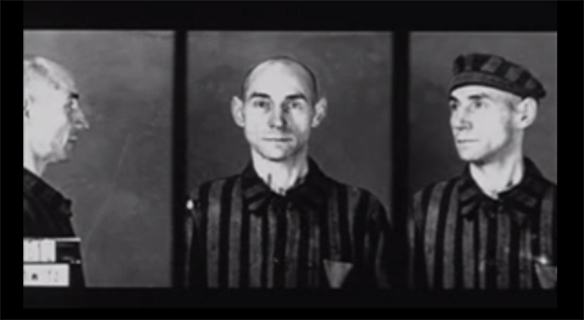A hundred thousand men and women identified as homosexuals were imprisoned during the Nazi regime. They were detained under a law known as “paragraph 175,” which made sodomy illegal. Up to 15,000 were sent to concentration camps instead of prisons. Nearly two-thirds would die there. The last surviving victim is believed to have died in 2011.
These men and women were not only victims of Nazi Germany, surviving torture in concentration camps, they were also denied validation as victims of the Third Reich. They were classified as criminals upon release and included on lists of sex offenders. Some were re-captured and imprisoned again.
The world went on to mourn the inhumanity of the Holocaust, but not for them. Because they were designated as non-victims, and also because they were stigmatized sexual minorities, they were largely excluded from the official history of Hitler’s Germany.

Seeking to give these men and women a voice, historian Klaus Müller interviewed several gay men and one lesbian around the year 2000. At the time, there were fewer than 10 left alive. Not one of the men and women imprisoned for being homosexual—alive or dead—had ever been officially identified as a victim of the Nazi regime.
The documentary, titled Paragraph 175, is one of the most heart-wrenching I’ve ever seen. For some, it sounds as if this is the first time anyone—even members of their own family—has ever asked them about what happened. Re-telling the stories of death and torture is obviously incredibly painful, as it would be for any survivor.
On top of this, however, is anger at their extended invisibility and continued oppression. Many seem opposed to talking about it at all, saying that it’s too painful to re-live, but it is as if they can’t help it; they are at the end of their lives and facing, perhaps, their first and last chance to do so. In the interviews, the anger, pain, survivor guilt, and relief mix together. It’s excruciating.
I was riveted, even as I desperately wanted to look away so as to avoid the emotions it brought out in me. I can’t recommend it strongly enough.
This post originally appeared onSociological Images, a Pacific Standard partner site.





